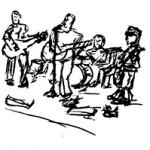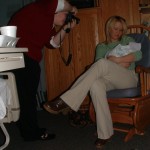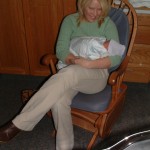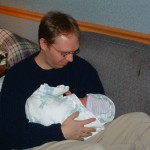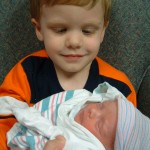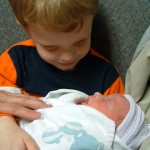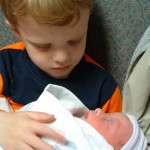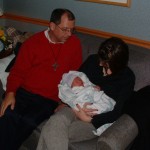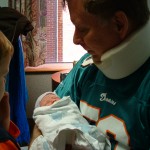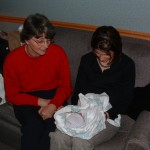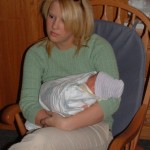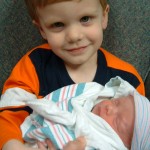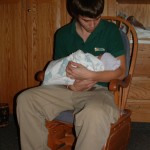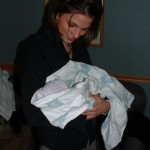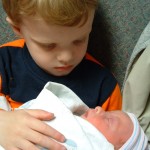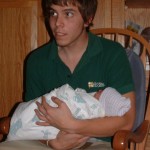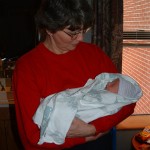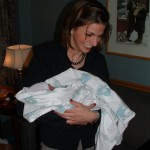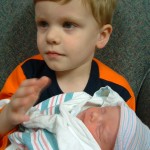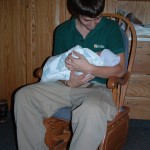I think it’s easier to write when you’re younger because you have a certain arrogance, a certain confidence. You don’t question your beliefs when you’re young. You look at things in terms of black and white and as I get older, shades of grey tend to creep in. “Maybe I’m not 100% right.” “Maybe the other guy’s got a point of view.” You tend to become a little more rabbinical. The more I find out the less that I know.
It’s amazing how in three minutes he can say what I’ve been thinking for months and say it exactly how I wanted to say it.
I start with the writing and I’m alone when I’m doing that. It all has to be done alone. When I’m finished with something, then I sit there and I think, “Are they gonna laugh at me?” You know, “Is it any good?” I write the music first. Then I look at it and think about what it is I want to express through this piece of music.
When you first hear somebody, you’re impressed by either vocals or the piano playing, but the songs that came out of him were tough. They had integrity, musicality and that’s the kind of thing you rarely find in a combination.
I write the music first and there’s some kind of emotion coming with the music. Then I look at this piece of music and I say, “What is this?” “What is it saying?” “What do I feel when I hear this piece of music?” “What does it make me want to express?”
He’s really a brilliant songwriter and he’s influenced by so many areas. This is a guy that when you hear his music you can hear The Doors, Simon and Garfunkel, The Beatles, Led Zeppelin. He’s like a sponge. He absorbs everything.
If I like it at the end then I think I’ve overcome what the biggest challenge is. That’s the thing that I’m always afraid of when I’m beginning a project. “What if I’m coming up with stuff that I hate?”
Some people write every day. I got stuck once and I couldn’t write. Like, I didn’t feel like a writer anymore. You feel terrible. It’s like a ball player in a slump. You can’t hit no matter what you do. You can’t call on your old skills. It’s just not working. You can’t put it all together. So I have to delude myself into feeling like a writer, into writing.
He’s also had an interactive thing between the band and himself. And, you know, the band is brutal. They didn’t care who he was or what was on his r?sum?. It either worked or it didn’t. If you’ll notice on an album it says ‘Words and Music by Jeff Hartman,’ ‘Produced by whoever,’ and it never says ‘Songs Arranged by’ because everyone has their input. He usually writes, has an idea, runs it by the band, and if it flies with the band, he’ll continue to write it and complete the song.
I find that on the road you’re living a very unreal type of existence. There’s nothing really to write about. There’s no source for material. So it takes me a while to start the writing process, just to feel like a human being again.
He had a very difficult time getting anything to come out because he had lost so much faith in everything that he believed in. He became responsive with his writing.
I think my writing about how I was feeling when those things were at crisis point, I helped myself deal with it. Sort of cathartic. Writing should be therapeutic because it’s such hell on the one hand, there should be an upside to it aside from record sales and having it done. You should grow from it, learn from it and benefit from it emotionally.
I suppose one of the ideas behind this project was sort of anarchy. Let’s see what happens. We started out, I wanted to create this jam band and sometimes it’s not commercially acceptable. So I spoke with different people about production and I had, had a meeting with David Black.
What he was trying to achieve, which was this, to get this homey quality and get away from Charlotte and the music business.
I recorded 11 things and listened to it back in my house. It was a great thing what we did out there. The equipment was great. It was sounding really good. I just think the band gave up at a certain time. I personally believe I could have produced another album with this unit.
Part of what he has and still continuously has is tremendous vision but not always focused about where or what he can be.
I’m thinking like a writer and the mentality of that is “Well, that’s close enough.” “That’s good enough.” “That’s pretty close to what I had in mind.” “Yeah, that’s fine.” “Let’s not overdo this.” But as I got further along I realized, I said, “Is this recording doing the material justice as more than just a home demo? This is gonna be a record that people are gonna listen to.”
So, my drummer tells me our engineer committed suicide. When he said it, it was like the car hit the wall and I flew through the windshield. I couldn’t believe it. I had a knot in my stomach because after two albums and a year of being in the studio with the guy, I just freaked out. Enter Chris Garges.
What I think he needed, was to be uncomfortable. Was to be taken out of everything that was comfortable for him. Was to be taken out of anything that was complacent, anything that was familiar and put in a situation where he had to react to new and different stimuli.
The thing that really got me to the point where “It’s my decision,” is that it says “Scott Jeffrey’s Band” on the cover. I have to make the choices.
A guy like Jeff is a great piano player. He’s a great singer. He’s a great songwriter. That’s three jobs. He also manages himself. That’s four jobs. Now how many of these jobs are you going to do well? Just being a great piano player is a phenomenal thing, a phenomenal skill to have. Now here’s a guy that’s trying to do maybe six or seven or eight of these things at the same time and something’s going to suffer when that happens. Some element is gonna suffer.
He writes from a certain perspective. He’s a keyboard player and his songs reflect how he plays the piano. I think his compositionist style is a keyboardist’s style. I think Jeff has brought a whole different rub to this, applying more guitar and a groove to the rhythm section. Jeff has his style. This album is about putting him in a slightly different context.
I wanted to bring the element of my music that we have not heard before. The funk element. I want it to sound like a small group really rockin’. I want it to have a raw, a little bit unfinished quality to it.
Jeff’s a really interesting rhythm guitar player. There’s a school of guitar playing that he does which is not really heard from anymore. It’s this very simple glue technique of guitar playing. John Lennon used to do it. Very unglamorous guitar playing, but it holds the whole thing together.
I wanted to find how far we can sit in a pocket, which is not something anyone else was concentrating on, but I’m glad I did because it brought out a lot of rhythmic aspects to the material, consistent rhythmic aspects that I hadn’t been focusing on. The pocket’s everything.
There’s two ways to approach creating music. One is completely as a recording entity. The other one is totally as a musical entity. If you can play it like a classical piece, that tends to be my better material.
Popular music can be very confusing. There’s an orthodox in Rock and Roll which does not allow you to really grow that much. “Well, you can’t be too jazzy.” “You can’t have too many classical elements.” “You can’t be too good a musician.” “You can’t be too sophisticated.” “You can’t sing too well.” “You can’t do this.” “You can’t do that.” Bologna. Who says I can’t?
Criticism is one of those things you have to live with. It doesn’t effect the way I write. I don’t write for critics.
I’ve always had these great ambitions to write a concept album. This is my idea. Once I start writing, it takes on a life of its own which I have almost nothing to do with as far as directing which direction its going to go. I become a prisoner of the writing. By the time I’m in the middle of the record I realize, “Oh. It’s going to be this.”
I think he was very concerned that people would walk on egg shells around him or tell him what they thought he may wanna hear as opposed to the truth about what they really think about his music and the direction and how I could help.
He’s always singing the song, so he knows if it’s going to be right or not. He knows if he has that emotional connection with it because he’s singing it. That means he’s inside the song. Every take that we do.
I don’t understand not progressing. We’re not gonna try to be kids. I’m not gonna try to please everybody. There’s no point in that. I have to be honest. I have to tell things from my perspective, from what I’ve learned. I’ve had a lot of experience. I’m not a little boy and I’m not going to try to capture what a 17-year-old kid would feel or think. I think that to remain a teenager all your life is a big mistake. Why not utilize all the aspects of what living is in your work?
I think that being a husband has made it very difficult to write. But being a father can only add dimension and depth to anything I write about. There’s problems that come along in every stage of life and there’s challenges and there’s complications that happen with every phase of life and to not draw on that, to not express some of that emotionally in music is doing a disservice to what music is capable of doing.
I gotta make sure that whatever I put in that’s accompaniment, it’s not too busy, it doesn’t run up through the range that I’m singing in and mess up the vocal because the job basically is to accompany the vocalist and to another extent the acoustic or piano.
He’s using his natural musicality, his talent as to what note should come next, what the chord progression should be so that it can be satisfying when he wants it to be. In other words, when it ends up in a place of tension and release or whether he wants to hang you up for a while, he knows how to make the music do that for a while. So, in other words, he knows how to say what he wants to say in music so that he achieves a certain effect.
He comforted myself. He found comfort in his beautiful children and realized this is what matters. The other stuff, that’s business stuff. That’ll be gone in a few years. This is what counts.
He really does dream music. He can allow himself to dream again. In dreaming he can allow himself to trust people again.
On this particular album, I didn’t go too far outside of my own experiences. The album unfolded as the material was written. Each song kicked off another song so there was a scenario. There’s a beginning, and middle and an end that was pretty much based on my own life and my own conclusions, my own trauma.
I wasn’t uncomfortable saying “I” because I thought I had something pretty interesting to say. more


